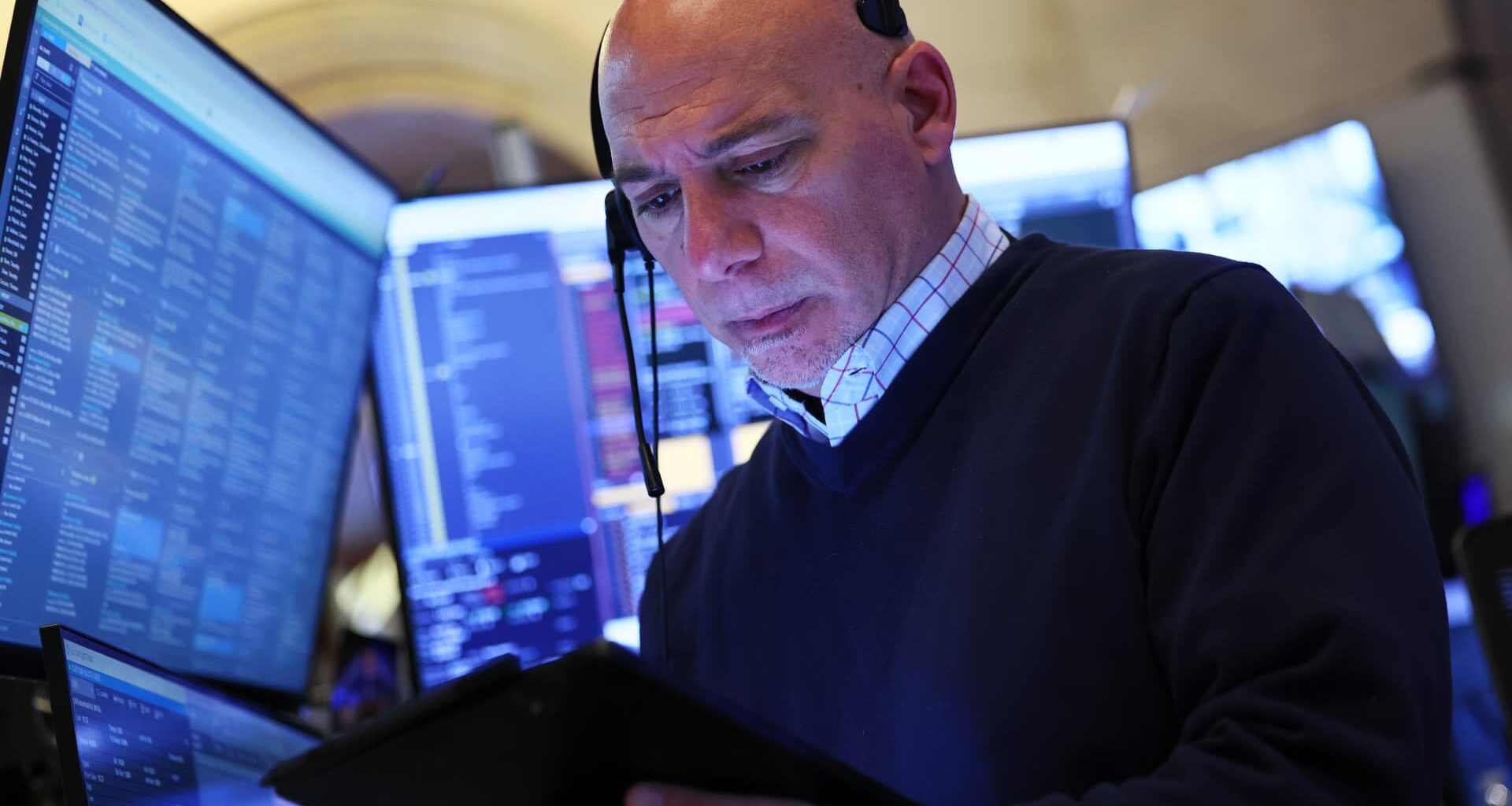Traders work on the floor of the New York Stock Exchange during morning trading on April 07, 2025 in New York City.
Michael M. Santiago | Getty Images
Stock futures lost some steam Wednesday after a new report showed private payrolls surprisingly decreased in June, raising concern over the state of the U.S. economy.
Futures tied to the Dow Jones Industrial Average were up just 16 points, giving up most of their earlier gains. S&P 500 futures also reversed course and slipped 0.1%, while Nasdaq 100 futures shed 0.3%.
The private sector lost 33,000 jobs last month, according to the latest report by ADP. Economists polled by Dow Jones expected payrolls to grow by 100,000. The report comes with the stock market near record highs despite concerns that lingering trade tensions between the U.S. and other countries could slow U.S. and global economic growth.
To be sure, the ADP report has a lackluster record predicting the government’s monthly jobs report, which is due out Thursday. Economists expect growth of 110,000 jobs for June.
Shares of some of the major U.S. banks were higher in the premarket after the firms announced plans to hike dividends following the Federal Reserve’s latest stress test results. JPMorgan and Goldman Sachs each traded up almost 1%, while Bank of America and Wells Fargo increased 0.5%. Citigroup also ticked up 0.4%.
Wall Street is coming off a mixed session, with the Dow surging 400 points, while the S&P 500 and Nasdaq closed lower after a broad decline in tech shares. The Dow got a boost as investors rotated into materials and health care stocks.
Traders also kept an eye on President Donald Trump’s tax-and-spending bill, which narrowly passed the Senate on Tuesday. The measure returns to the House, where there are still hold-outs among GOP lawmakers.
“We expect to see more volatility in fixed income, even once they get the bill passed, whatever that looks like,” said Jose Rasco, HSBC Global Private Banking and Wealth Management Americas CIO on “Closing Bell: Overtime.” “That’s going to bleed over into the equity markets.”
Still, this turbulence is likely to be short-lived, he said. “Once these things get resolved and once the [Federal Reserve] gets back in gear, there’s a lot of upside here,” Rasco said.
